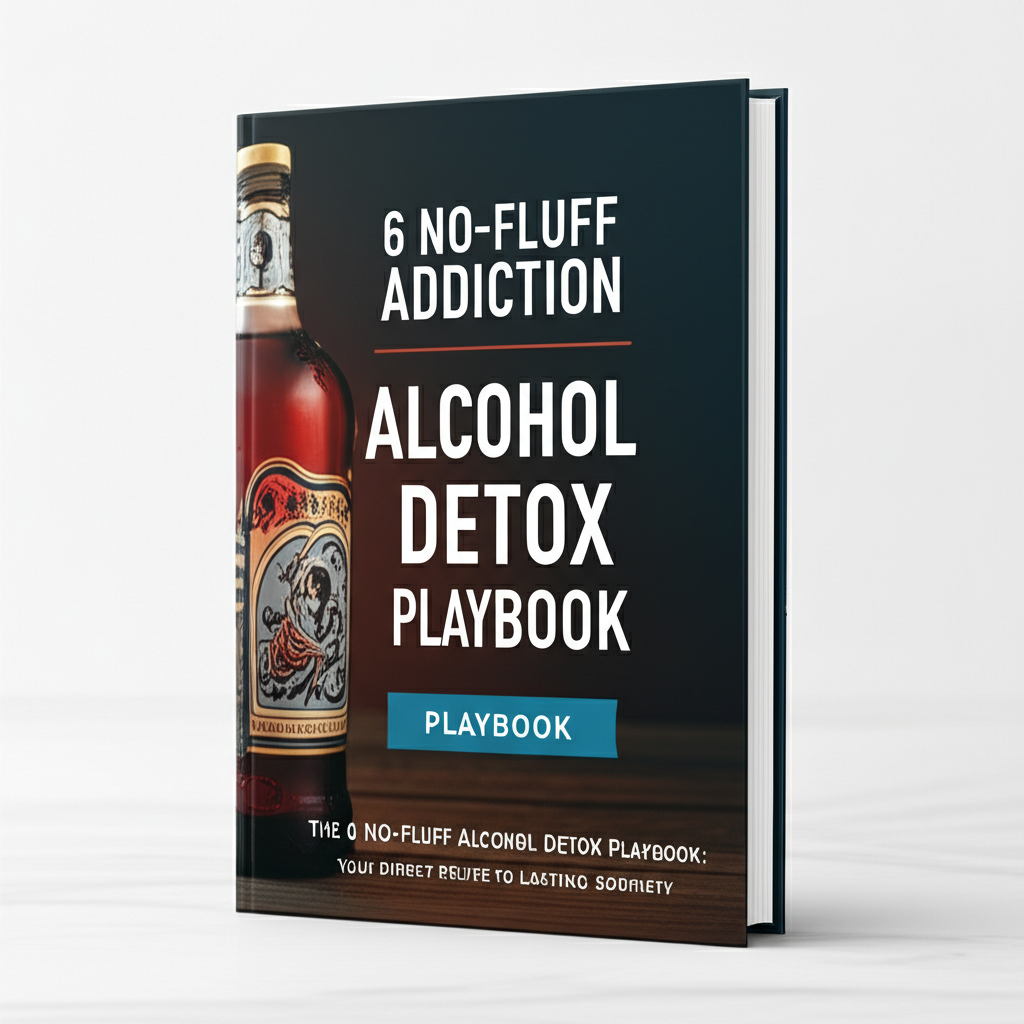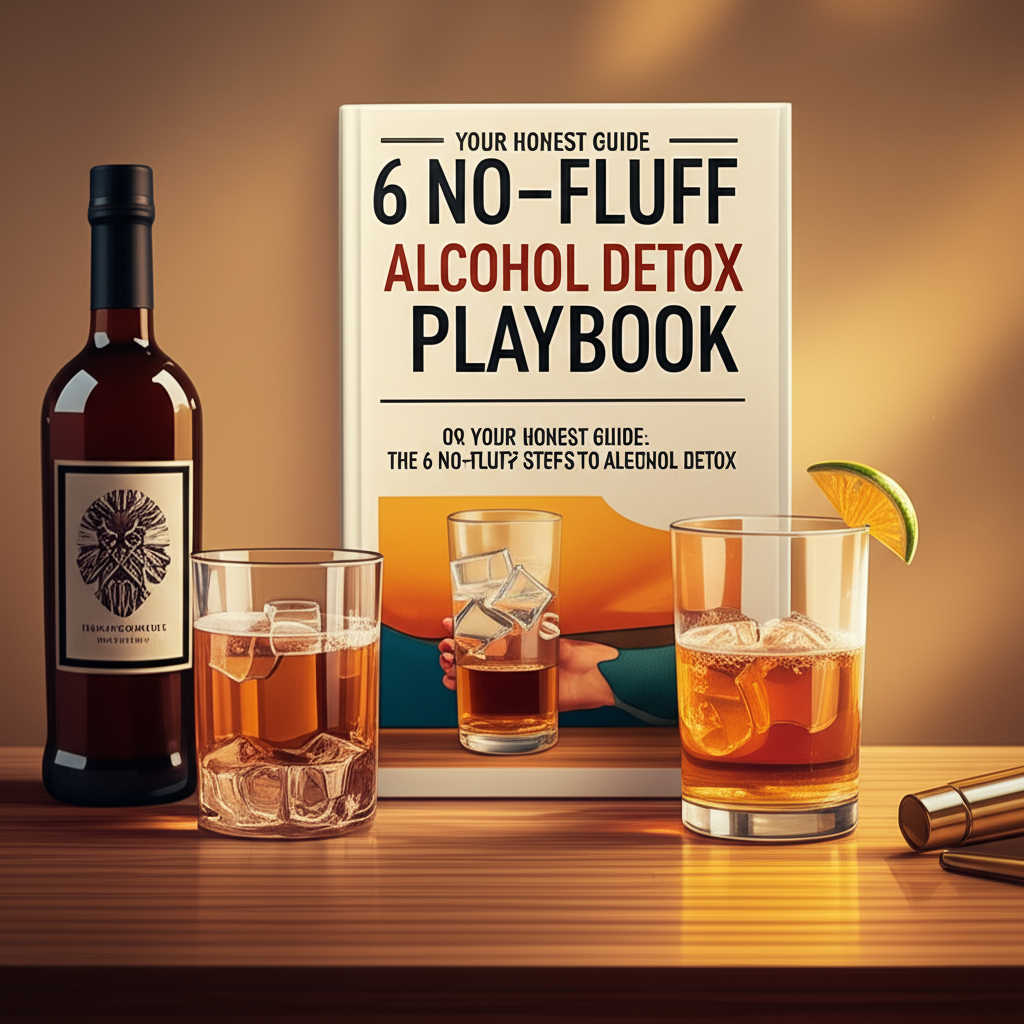The decision to break free from the grip of alcohol addiction is one of the bravest and most profound choices an individual can make. It’s a declaration of self-worth, a commitment to a healthier future, and the first courageous step on a challenging yet incredibly rewarding journey. But for many, the path to sobriety feels shrouded in uncertainty, especially when it comes to the crucial initial phase: detoxification.
Alcohol detox is far more than just "stopping drinking." It’s a complex physiological process where the body rids itself of alcohol and adjusts to its absence. For individuals with alcohol dependence, this process can be uncomfortable, painful, and even life-threatening due to withdrawal symptoms. This is why attempting to detox without professional medical supervision is not only ill-advised but highly dangerous.
Understanding that every individual’s journey is unique, there isn’t a single "right" way to detox. Instead, there are several well-established and medically-backed "playbooks" designed to cater to different levels of dependence, personal circumstances, and medical needs. This comprehensive guide will explore the four best alcohol addiction detox playbooks, offering clarity, support, and a roadmap to reclaiming your life.
Understanding Alcohol Detox: Why It’s Critical
Before diving into the specific playbooks, it’s essential to grasp the fundamental importance of a medically supervised alcohol detox. Alcohol is a central nervous system depressant. When someone drinks heavily and consistently, their brain adapts by increasing activity to counteract the alcohol’s sedative effects. When alcohol is suddenly removed, the brain remains in this overactive state, leading to a cascade of withdrawal symptoms.
The Dangers of Unsupervised Detox
Attempting to detox from alcohol at home without medical guidance can lead to severe and potentially fatal complications. These can include:
- Tremors and Shakes: Often one of the first signs, ranging from mild to severe.
- Nausea and Vomiting: Can lead to dehydration and electrolyte imbalances.
- Anxiety and Agitation: Intense emotional distress and restlessness.
- Hallucinations: Visual, auditory, or tactile disturbances that can be terrifying.
- Seizures: Can occur within 6-48 hours of the last drink and are a significant medical emergency.
- Delirium Tremens (DTs): The most severe form of alcohol withdrawal, characterized by confusion, disorientation, rapid heart rate, high blood pressure, fever, and severe tremors. DTs are a medical emergency with a significant mortality rate if untreated.
The Goal of Detox
The primary goal of any alcohol detox program is to safely manage withdrawal symptoms, stabilize the individual’s physical and mental health, and prepare them for long-term addiction treatment. This involves:
- Medical Monitoring: Close observation of vital signs and symptom progression.
- Medication Management: Administering medications to alleviate withdrawal symptoms and prevent complications.
- Nutritional Support: Ensuring proper hydration and nutrition to aid recovery.
- Emotional Support: Providing a safe and empathetic environment to navigate the emotional challenges.
The 4 Best Alcohol Detox Playbooks
Each playbook offers a distinct approach, tailored to varying needs and circumstances. The "best" playbook is ultimately the one that best suits your individual situation, determined in consultation with medical professionals.
Playbook 1: Inpatient Medical Detox (The Gold Standard)
Who It’s For: Inpatient medical detox is widely considered the safest and most effective option, especially for individuals with:
- Severe alcohol dependence.
- A history of severe withdrawal symptoms (e.g., seizures, DTs).
- Co-occurring mental health disorders (dual diagnosis).
- Significant medical complications.
- A lack of a stable, supportive home environment.
- A history of relapse during previous detox attempts.
What to Expect: This playbook involves residing in a specialized medical facility, such as a hospital wing or a dedicated detox center, for the duration of the withdrawal period (typically 3-10 days, though it can vary).
- 24/7 Medical Supervision: Constant monitoring by doctors, nurses, and addiction specialists.
- Medication-Assisted Treatment (MAT): Medications like benzodiazepines (e.g., Ativan, Valium, Librium) are often prescribed to reduce anxiety, prevent seizures, and manage other severe withdrawal symptoms. Other medications may be used to address specific symptoms like nausea or sleep disturbances.
- Comfort and Support: A safe, structured environment focused on patient comfort and well-being. This often includes quiet rooms, nutritional meals, and emotional support.
- Early Therapeutic Intervention: While the primary focus is stabilization, some inpatient programs begin introducing therapy sessions or educational groups towards the end of the detox phase to prepare for ongoing treatment.
- Discharge Planning: A crucial component, ensuring a smooth transition to the next phase of recovery, such as residential rehab or outpatient programs.
Pros:
- Highest level of medical safety and supervision.
- Effective management of severe withdrawal symptoms and complications.
- Removes the individual from environments that trigger alcohol use.
- Provides immediate access to crisis intervention.
- Offers a strong foundation for continuing treatment.
Cons:
- Can be more expensive than other options.
- Requires time away from work, family, and other responsibilities.
- Limited personal freedom during the stay.
Playbook 2: Outpatient Medical Detox (Structured Support at Home)
Who It’s For: Outpatient medical detox is suitable for individuals with:
- Moderate alcohol dependence.
- A stable and supportive home environment.
- No history of severe alcohol withdrawal symptoms (seizures, DTs).
- Good overall physical and mental health.
- Strong motivation and commitment to follow medical instructions.
- Responsibilities (work, family) that make inpatient care challenging.
What to Expect: This playbook allows individuals to detox from the comfort of their own home while attending regular, scheduled appointments at a clinic or doctor’s office.
- Regular Medical Check-ins: Daily or near-daily visits with a doctor or nurse for vital sign monitoring, symptom assessment, and medication adjustments.
- Prescribed Medications: Similar to inpatient detox, medications (e.g., benzodiazepines in controlled doses) are prescribed to manage withdrawal symptoms. These are typically dispensed in limited quantities to prevent misuse.
- Education and Counseling: Patients often receive education about alcohol withdrawal, coping strategies, and the importance of ongoing treatment. Some programs integrate individual or group counseling sessions.
- Support System Involvement: Family members or close friends may be asked to help monitor the individual and provide support, ensuring a safe environment at home.
Pros:
- Allows the individual to remain at home and maintain daily routines.
- Less disruptive to work and family life.
- Generally less expensive than inpatient detox.
- Offers a sense of personal responsibility and empowerment.
Cons:
- Requires a strong support system at home and self-discipline.
- Higher risk of relapse if temptations are present in the home environment.
- Less intensive medical supervision compared to inpatient.
- Not suitable for those with severe dependence or complicated medical histories.
Playbook 3: Home Detox with Telehealth Support (The Modern Approach)
Who It’s For: This is a newer, increasingly accessible option for individuals with:
- Mild to moderate alcohol dependence.
- No history of severe withdrawal or co-occurring severe medical/mental health conditions.
- Access to reliable internet and communication technology.
- A strong, sober support system at home.
- Geographical limitations to accessing in-person care.
What to Expect: This playbook leverages technology to provide medical oversight for home detox, making it a hybrid between traditional outpatient and self-directed care.
- Virtual Consultations: Regular video calls with doctors, nurses, and therapists to assess symptoms, monitor progress, and provide guidance.
- Remote Monitoring: Patients may use wearable devices or self-report tools to track vital signs and symptom severity, which are shared with their medical team.
- Medication Delivery: Prescribed medications (e.g., benzodiazepines, anti-nausea meds) are often delivered directly to the patient’s home, with strict protocols for dispensing and monitoring.
- Digital Therapy and Support: Access to online individual counseling, group therapy sessions, and educational resources through secure platforms.
- Emergency Protocols: Clear instructions and access to emergency medical care if withdrawal symptoms escalate.
Pros:
- Maximum convenience and privacy, as detox occurs entirely at home.
- Accessible to individuals in rural or underserved areas.
- Often more affordable than traditional inpatient or even outpatient programs.
- Integrates modern technology into healthcare delivery.
Cons:
- Relies heavily on patient compliance and self-reporting.
- Less direct medical intervention if a crisis arises.
- Requires a tech-savvy individual and reliable internet access.
- Not suitable for severe cases or those lacking a stable, sober home environment.
- Crucial Disclaimer: This method must be medically supervised by qualified professionals. Self-detox with information from the internet is extremely dangerous.
Playbook 4: Holistic & Alternative Detox (Complementary, Not Standalone)
Who It’s For: This "playbook" is not a standalone primary detox method but rather a complementary approach that can be integrated alongside medical supervision for individuals seeking a more comprehensive wellness focus. It’s for those who:
- Are already undergoing a medically supervised detox (inpatient or outpatient).
- Are interested in natural healing and complementary therapies to support their recovery.
- Seek to address the mind-body connection in their healing process.
What It Involves: Holistic approaches focus on nourishing the body, mind, and spirit to promote overall well-being and ease the discomfort of withdrawal. These are typically used in addition to conventional medical detox, not as a replacement.
- Nutritional Therapy: Emphasis on nutrient-dense foods, hydration, and supplements to repair damage caused by alcohol and support brain function. This might include vitamins (especially B-complex), minerals, and amino acids.
- Acupuncture: Used to reduce cravings, alleviate anxiety, and promote relaxation.
- Yoga and Meditation: Techniques to manage stress, improve mood, and foster mindfulness, helping individuals cope with emotional discomfort.
- Massage Therapy: Can help relax muscles, reduce tension, and improve circulation.
- Herbal Remedies: Certain herbs (e.g., milk thistle for liver support, chamomile for relaxation) might be used, but always under strict medical guidance due to potential interactions with prescribed medications or underlying conditions.
Pros:
- Addresses the whole person, not just the physical symptoms.
- Can enhance comfort and reduce stress during detox.
- Empowers individuals with self-care tools for long-term recovery.
- May help with physical healing and restoration.
Cons:
- Absolutely not a substitute for medical detox.
- Efficacy varies and some claims lack robust scientific evidence.
- Potential for misleading or dangerous advice if not guided by qualified professionals.
- Can add to the overall cost of treatment.
Beyond Detox: The Path to Lasting Sobriety
Detox is merely the critical first step. It cleanses the body, but it doesn’t address the underlying psychological, emotional, and behavioral issues that drive alcohol addiction. For lasting sobriety, a comprehensive aftercare plan is essential.
1. Therapy and Counseling
- Cognitive Behavioral Therapy (CBT): Helps individuals identify and change negative thought patterns and behaviors associated with drinking.
- Dialectical Behavior Therapy (DBT): Focuses on emotional regulation, distress tolerance, and interpersonal effectiveness.
- Individual Counseling: One-on-one sessions to explore personal triggers, past traumas, and develop coping mechanisms.
- Group Therapy: Provides a supportive community, reduces feelings of isolation, and allows individuals to learn from peers.
- Family Therapy: Addresses the impact of addiction on family dynamics and helps rebuild relationships.
2. Support Groups
Programs like Alcoholics Anonymous (AA), SMART Recovery, and other peer-led groups offer invaluable ongoing support, mentorship, and a sense of community. They provide a safe space to share experiences, strategies, and encouragement.
3. Aftercare Planning and Relapse Prevention
A robust aftercare plan involves creating strategies to prevent relapse, including:
- Identifying high-risk situations and triggers.
- Developing healthy coping mechanisms.
- Establishing a sober support network.
- Setting realistic goals for sobriety.
- Contingency planning for potential setbacks.
4. Addressing Co-occurring Disorders
Many individuals with alcohol addiction also struggle with mental health conditions like depression, anxiety, or PTSD. Integrated treatment that addresses both the addiction and the co-occurring disorder simultaneously is crucial for successful long-term recovery.
Choosing Your Playbook: A Personalized Decision
Selecting the right detox playbook is a highly personal decision that should always be made in consultation with medical professionals. Key factors to consider include:
- Severity of Dependence: How much and how often do you drink?
- Medical History: Any pre-existing conditions, past withdrawal experiences, or mental health issues?
- Support System: Do you have sober, reliable support at home?
- Financial Situation: What are your insurance coverage and budget?
- Personal Preferences: What environment do you feel most comfortable and safe in?
The most crucial step is to reach out for help. Contact an addiction specialist, your primary care physician, or a reputable detox facility. They can conduct a thorough assessment, recommend the most appropriate detox playbook for your unique needs, and guide you toward a sustainable path to sobriety.
Conclusion: Embrace the Journey to Freedom
The journey to overcome alcohol addiction is undeniably challenging, but it is a journey filled with hope, healing, and the promise of a brighter future. Understanding the different detox playbooks – from the comprehensive safety of inpatient care to the flexible support of telehealth-backed home detox – empowers you to make informed decisions about this vital first step.
Remember, you don’t have to face this alone. There are compassionate, experienced professionals ready to guide you through every stage of the detox process and beyond. By choosing the right playbook and committing to ongoing recovery efforts, you are not just stopping drinking; you are reclaiming your health, rebuilding your life, and unlocking a future free from the constraints of addiction. Take that courageous first step today – your sober future awaits.








